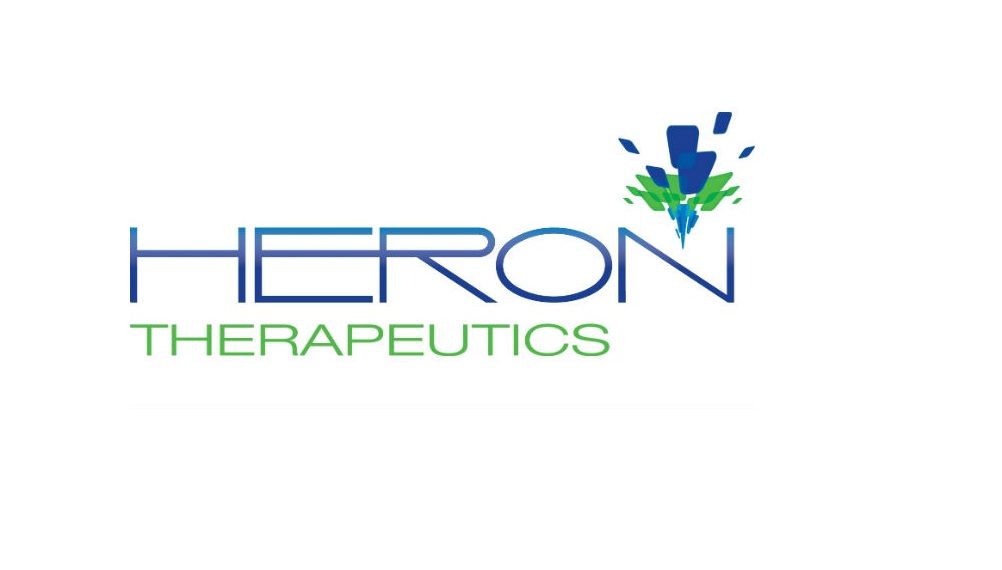Heron Therapeutics, a commercial-stage biotechnology company, announced the initiation of the GUARDS-1 Study, a phase 2 clinical study evaluating Cinvanti (aprepitant) injectable emulsion in early hospitalized patients with coronavirus disease 2019 (COVID-19). The study initiation follows clearance from the US Food and Drug Administration (FDA) of Heron’s Investigational New Drug application for Cinvanti for the treatment of COVID-19.
Cinvanti is an intravenous formulation of aprepitant, a substance P/neurokinin-1 (NK1) receptor antagonist (RA) approved for use for the prevention of chemotherapy-induced nausea and vomiting in patients with cancer. Substance P, and its receptor NK1, are distributed throughout the body in the cells of many tissues and organs, including the lungs. COVID-19, which is caused by severe acute respiratory syndrome coronavirus 2 (SARS-CoV-2), is associated with lower respiratory tract inflammation that often progresses to Acute Respiratory Distress Syndrome (ARDS). ARDS is associated with high mortality.
Heron’s rationale for the investigation of Cinvanti for the treatment of COVID-19 is based on multiple potential mechanisms for activity. Suppressing the cytokine storm could be a crucial step to prevent the clinical deterioration of patients with COVID-19. Administration of aprepitant injectable emulsion to these patients is expected to decrease the production and release of inflammatory cytokines mediated by the binding of substance P to NK1 receptors, which could prevent the progression of lung injury to ARDS. A hallmark of COVID-19 is a non-productive neurogenic cough, likely due to the increased susceptibility of lung tissue to neurogenic inflammation caused by the disease. Recent studies have demonstrated that administration of oral aprepitant resulted in significantly decreased severity of cough in patients with neurogenic cough associated with advanced lung cancer. Additionally, aprepitant may have direct antiviral activity. Using a computational screening approach, aprepitant was found to have the ability to form hydrogen bonds to key residues within the binding pocket of the main protease of SARS-CoV-2, which is a key enzyme required for replication. Cinvanti is approved for administration as a 2-minute intravenous injection. For these potential benefits, the plasma concentrations of aprepitant produced with the 2-minute intravenous injection of Cinvanti could provide a unique advantage over other methods of administration.
GUARDS-1, also referred to as Study HTX-019-202, is a randomized, placebo-controlled, double-blinded, phase 2 study designed to investigate the efficacy and safety of adding daily dosing of Cinvanti for 14 days as a 2-minute intravenous injection to standard of care to reduce mortality and the need for assisted ventilation in early hospitalized adult patients with a confirmed SARS–CoV-2 infection. The use of remdesivir through the Emergency Use Authorization and dexamethasone as standard of care are both permitted in the study. The study will include up to approximately 100 adult patients who are hospitalized with a confirmed SARS-CoV-2 infection less than 24 hours prior to randomization. Importantly, the participating clinical study sites have a high concentration of racial and ethnic minority patients affected by COVID-19.
“The COVID-19 pandemic has impacted millions of Americans. With the rate of hospitalization increasing in many states, many intensive care units (ICUs) are reaching capacity. Identifying marketed drugs that may keep more patients out of the ICUs is the most efficient way to impact the current crisis,” said Barry Quart, Pharm.D., president and chief executive officer of Heron. “With an existing commercial supply chain for Cinvanti and a positive safety profile in over 1 million single-dose administrations to patients with cancer who also receive dexamethasone, we are hopeful that we can deliver an effective therapeutic option for patients with COVID-19.”
Cinvanti, in combination with other antiemetic agents, is indicated in adults for the prevention of acute and delayed nausea and vomiting associated with initial and repeat courses of highly emetogenic cancer chemotherapy (HEC) including high-dose cisplatin as a single-dose regimen, delayed nausea and vomiting associated with initial and repeat courses of moderately emetogenic cancer chemotherapy (MEC) as a single-dose regimen, and nausea and vomiting associated with initial and repeat courses of MEC as a 3-day regimen. Cinvanti is an IV formulation of aprepitant, a substance P/neurokinin-1 (NK1) receptor antagonist (RA). Cinvanti is the first IV formulation to directly deliver aprepitant, the active ingredient in EMEND capsules. Aprepitant (including its prodrug, fosaprepitant) is the only single-agent NK1 RA to significantly reduce nausea and vomiting in both the acute phase (0–24 hours after chemotherapy) and the delayed phase (24–120 hours after chemotherapy). The FDA-approved dosing administration included in the United States prescribing information for Cinvanti is a 30-minute IV infusion or a 2-minute IV injection.



















